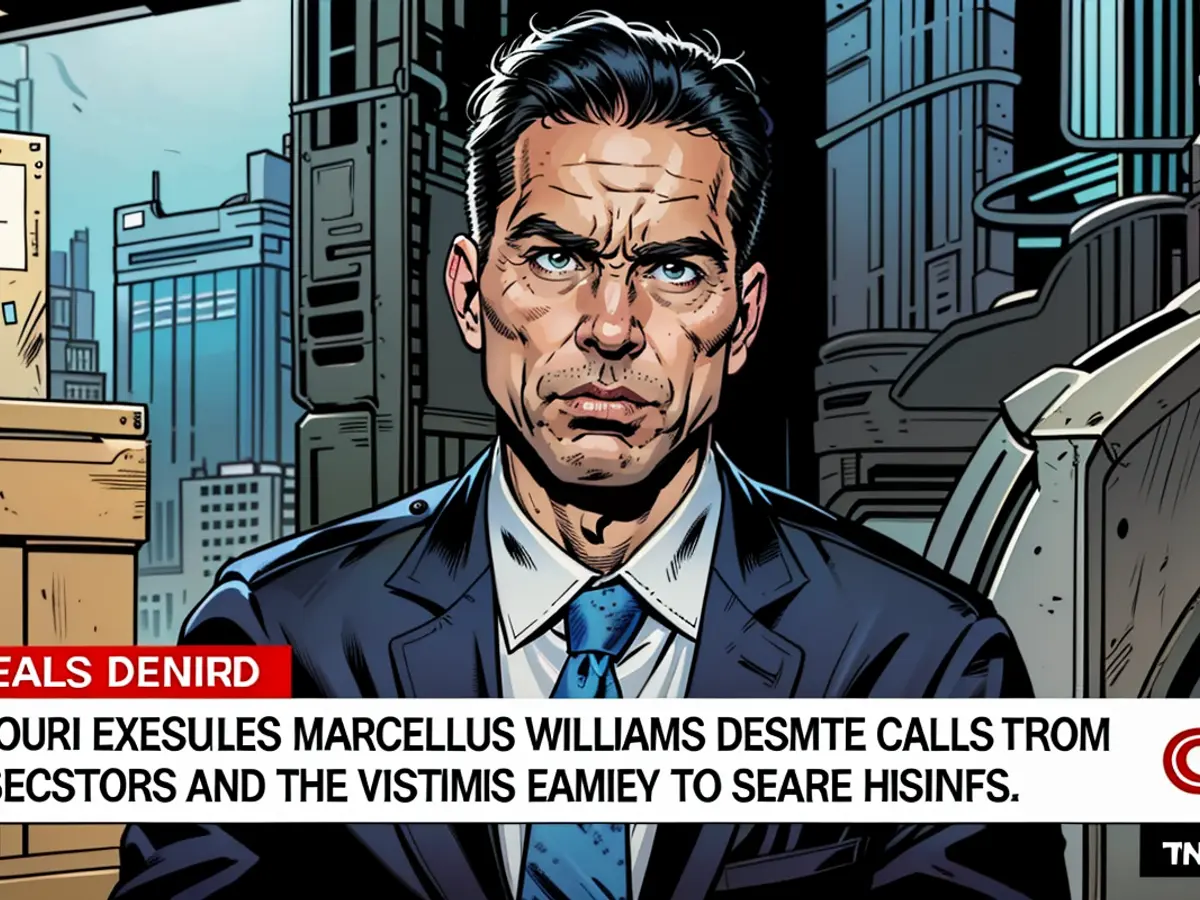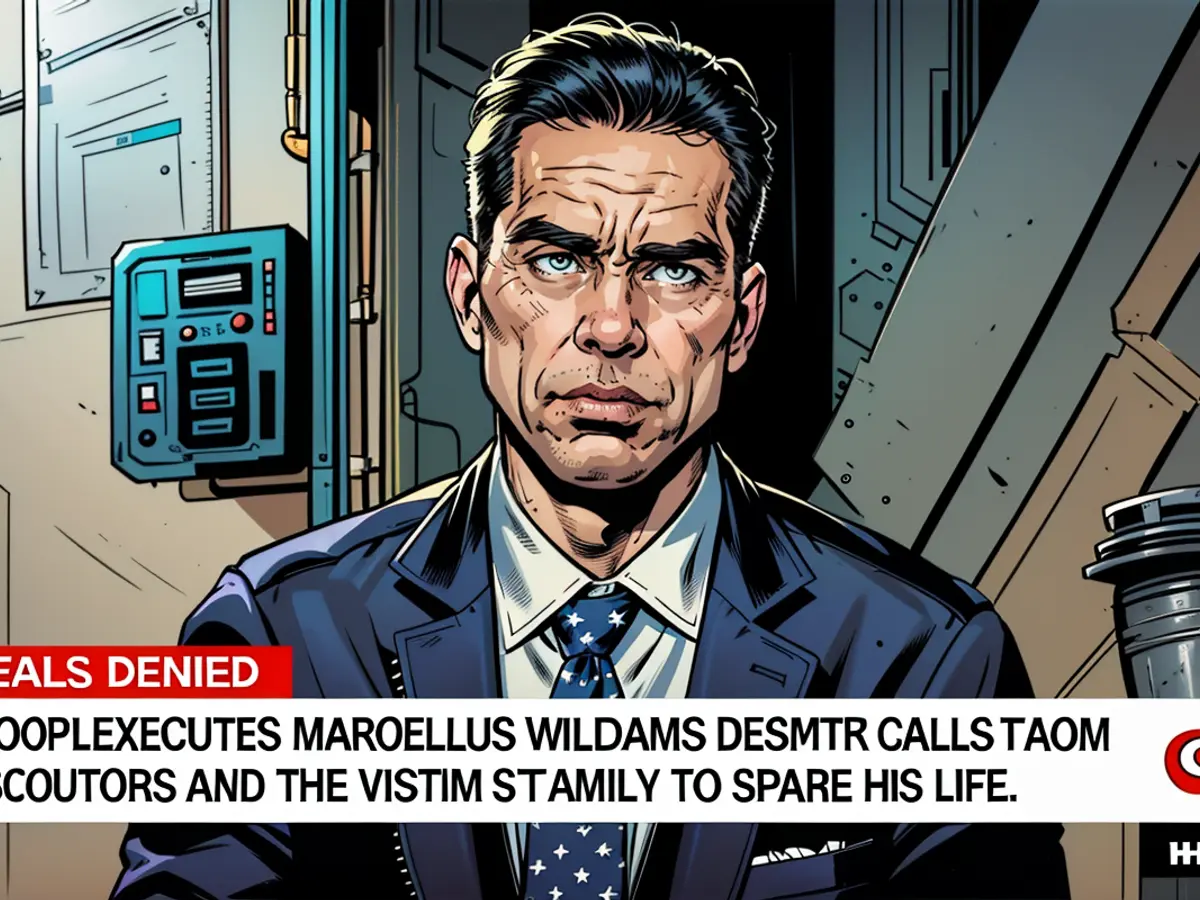Marcellus Williams' execution stirs renewed examination of the Supreme Court's strategies regarding capital punishment
Marcellus Williams, convicted in 2001 of murdering news journalist Felicia Gayle, was put to death on Tuesday evening, shortly after the conservative justices of the Supreme Court declined to intervene against the objections of the court's three liberal judges. Criticism of the execution was swift, with the NAACP and other organizations alleging Williams' innocence.
Some of the backlash has focused on the Supreme Court, which has rarely granted last-minute reprieves for death row inmates in the past. In fact, the court has only intervened twice in the past two years out of over two dozen emergency appeals, according to data from the Death Penalty Information Center.
"It's very concerning how the Supreme Court is handling capital cases lately," said Cliff Sloan, a Georgetown Law professor who won a significant case at the Supreme Court in 2017 regarding an intellectually disabled death row inmate. "In a fair and just society, an independent claim of innocence should be recognized as a crucial constitutional claim."
When dissents are present in petitions for capital cases, they usually come from the court's liberal wing. The appeals then tend to divide the liberals and conservatives into separate camps.
"The Supreme Court has a limited role to play in death penalty cases," said Paul Cassell, a University of Utah law professor representing a victim's family in another death penalty case before the high court this year. "These cases are primarily the responsibility of state authorities, with minimal oversight from federal courts."
The death penalty will remain a topic of interest at the Supreme Court in the coming weeks, with several defendants set for review when the justices meet on Monday to consider a stack of appeals from the summer. One such case involves an Oklahoma woman accused of killing her husband who claims prosecutors shamed her during her trial by calling her a "slut puppy" and displaying her underwear for the jury.
Another case involves an Alabama man who argues he is intellectually disabled and therefore not eligible for execution according to Supreme Court precedent.
Glossip's appeal to be heard next month
The court is scheduled to hear arguments about Richard Glossip, a death row inmate in Oklahoma, next month. Glossip's case involves the 1997 murder of Barry Van Treese, the owner of a motel in Oklahoma City. Justin Sneed, who worked at the motel, was convicted of that murder but, in exchange for avoiding a death sentence, implicated Glossip as the mastermind and the one who hired Sneed to carry out the crime.
Glossip is seeking to overturn his conviction, as the state has acknowledged numerous errors in its case. For instance, prosecutors failed to disclose medical records showing that Sneed, the primary witness against Glossip, had been treated for a psychiatric condition. Oklahoma's Attorney General, Republican Gentner Drummond, who defends the death penalty, is supporting Glossip based on the "disturbing evidence of serious prosecutorial misconduct."
Williams, whose execution sparked outrage on social media, attempted to draw parallels with Glossip's situation, citing similar concerns about his trial. Among other issues, St. Louis County Prosecuting Attorney Wesley Bell said that his predecessor had mishandled the murder weapon by touching it without gloves. Bell, a Democrat running for Congress, noted such irregularities.
However, in Williams' case, Missouri Attorney General Andrew Bailey, a Republican running for re-election, dismissed these theories. Bailey argued that DNA testing would not have exonerated Williams, as the evidence supported the testimony of a crime scene investigator indicating that the killer wore gloves, leaving glove marks at the crime scene.
The cases share some similarities, leading some to predict potential issues for Glossip's appeal.
According to Robert Dunham, director of the Death Penalty Policy Project, who has also represented death row inmates at the Supreme Court, a serious failure by the state courts to address the issues in the case warrants a Supreme Court intervention, especially when an appeal is jointly filed by both the prosecution and defense.
Cassell, representing the Van Treese family in the Glossip appeal, disputes these claims, saying that supporters of the defendant's arguments have overlooked essential facts in the case and rely on selected details from the prosecutors' records.
The Supreme Court did not provide an explanation for denying Williams' request. The court's three liberal justices, Sotomayor, Kagan, and Jackson, expressed their dissent without providing further explanation.
In a previous death penalty case, in January, Sotomayor penned a forceful dissent, expressing concern about the use of nitrogen gas for execution. She argued that the method had never been tried before, and in the event of failure, condemned the prisoners to a painful and inhumane end.
Smith was executed in late January, despite Sotomayor's opposition.
In a significant 1972 judgment, the Supreme Court declared that the manner inwhich states were implementing the death penalty was a form of inhumane treatment, breaching the Eighth and Fourteenth Amendments. Despite annulling numerous death sentences, the practice itself was not utterly abolished. Numerous states subsequently passed revised laws, permitting executions in a manner compliant with the court's judgment.
The court's reluctance to consider late-minute death penalty appeals primarily stems from its position within the federal judiciary. Justices aim to identify clear mistakes made by lower courts, not fresh evidence presented by the defendants.
Seth Kretzer, a defense attorney who has worked on death row cases before the Supreme Court, summed up the court's stance as, "to rectify severe misapplications of constitutional law by America's state court systems."
Kretzer stated that the court would not halt an execution, even in an individual case, merely due to new evidence presented at the last moment.
Upcoming cases
In coming days, the court will decide if the current pending cases meet this stringent threshold.
In one such pending appeal, lawyers for Alabama death row inmate Joseph Smith are arguing that he should be regarded as intellectually disabled, based on tests indicating an IQ score slightly above 70, a criterion referenced in an earlier Supreme Court ruling.
However, the 11th US Circuit Court of Appeals argued that this score is not a rigid boundary and minor deviations in testing could place Smith's actual IQ slightly below 70. Alabama is appealing this decision before the Supreme Court, waiting for a response over a year now.
In Oklahoma, Brenda Andrew is facing the death penalty for the 2001 murder of her estranged husband. In her appeal to the Supreme Court, Andrew contends that the prosecution's use of "irrelevant sexual history" should invalidate her conviction.
"By removing Ms. Andrew's humanity as a whole person, the state offered the jury a depiction of a 'slut' and depraved adulterer," her lawyers told the Supreme Court.
Oklahoma officials, however, argued that the evidence "suggested that Andrew harbored hatred for her husband and openly expressed her desire to see him dead."
CNN’s Devan Cole contributed to this report.
The conversation about the Supreme Court's role in capital cases and its handling of last-minute reprieves for death row inmates continues to resonate in political circles. For instance, Cliff Sloan, a professor at Georgetown Law, emphasized that an independent claim of innocence should be recognized as a critical constitutional claim in a fair and just society.
Additionally, Robert Dunham, the director of the Death Penalty Policy Project, stated that a serious failure by state courts to address issues in a case warrants Supreme Court intervention, especially when an appeal is jointly filed by both the prosecution and defense.










